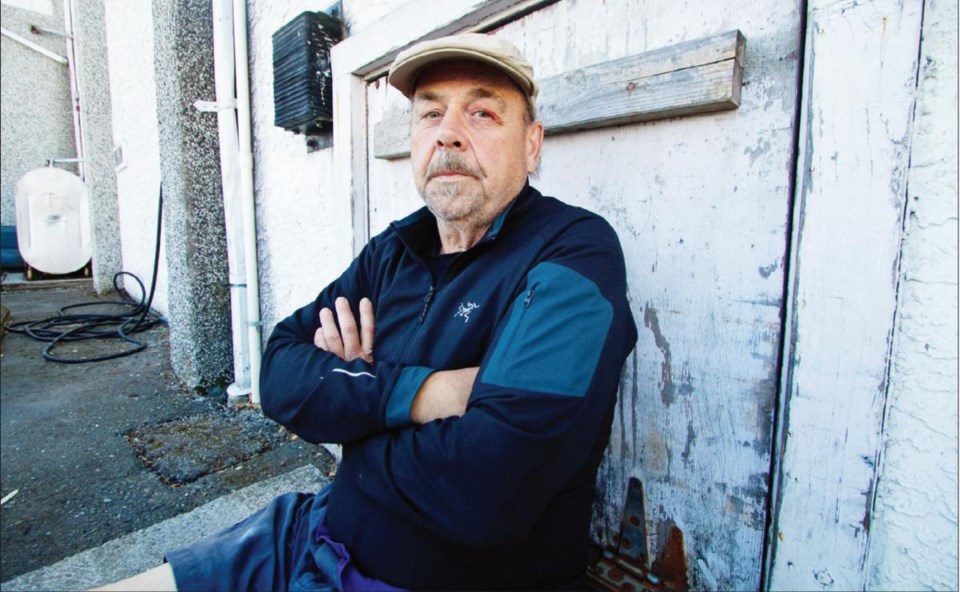The room Dave Lockyer rents in a Victoria hotel is at least 15 metres away from the shared bathroom. For someone with Crohn's disease, that's a problem.
"I sometimes don't make it, so now I am having to fight with the government to supply me with Depends [adult diapers]," said the 62-year-old, who has alternated between homelessness and inadequate housing for more than a decade.
Lockyer is one of more than 1,600 people in Greater Victoria who are homeless or badly housed. He's also on the list of 1,545 people trying to get into subsidized housing.
The 1,600 figure is based on those who used emergency shelters in 2011-12, said researcher Bernie Pauly, of the University of Victoria's Centre for Addictions Research of B.C. It doesn't include those sleeping outdoors, couchsurfing or staying in inadequate shelters, Pauly said.
It's a number that's largely static, even though 639 clients were housed in the last year and 245 new units of subsidized housing have been created since 2009.
"While we have housed people, we have not stopped the flow into homelessness," Pauly said.
Undeterred, the Coalition to End Homelessness remains committed to achieving its goal in Greater Victoria by 2018, said Victoria Mayor Dean Fortin, cochairman of the group.
"It's not only a challenge we can embrace, it's a challenge we know we can win," he said.
Lockyer is hoping he is right. He notes that he has been waitlisted to move into North Park Manor, a subsidized complex, but he's No. 12 on the list.
"So I have to wait for 12 people to die," he said.
Lockyer, a former electronics technician who cannot work because of his illness, receives $956 a month in disability payments.
Even with cheap rent, food money does not stretch through the month.
But problems go deeper than the need for money and more housing units, said Lockyer, who wants to see "a big-time attitude change."
"[People] see a ragged guy on the street and they tell you to get a job and get off the street. They treat us like a bunch of drug dealers or don't acknowledge us," he said.
For Michael Woesten-burg, who has spent the last six months living in shelters, the key is more affordable or subsidized rentals.
"I thought when I came here I would be able to get a place and get set up in a month," said Woesten-burg, who moved to Victoria from Surrey.
Instead, he has found the $710-a-month income-assistance payment he receives as a single person will not stretch when the median rent for a bachelor apartment is $685.
"You pay between $450 to $600 for one room in a house," said Woesten-burg, who suffers from conversion disorder - a problem with the nervous system.
Woestenburg, an artist, wants somewhere he can work with a computer and scanner.
"I just need someone to give me a break on rent or a small job," he said. "I'm on my third pair of shoes and that's a lot of walking for a person with a disability."
Tim Richter, president of the Canadian Alliance to End Homelessness, said the secret to ending homelessness is political leadership and that means getting the provincial government on board.
In Alberta, where homelessness is dropping dramatically, the province has put money into solving the problem, partially because it makes economic sense and partially because of a co-ordinated approach by cities with similar 10-year plans, Richter said.
"The most conservative government in Canada became the first to commit to ending homelessness," he said. "If we can create a movement of cities and communities, we can get the provinces and, if we can get the provinces, we can get the feds."
FIVE PROJECTS PROPOSED
How to end homelessness in Greater Victoria? Five proposed housing projects were announced Tuesday. Story, page A5



